ESI Emphasises On Results, More Than Products: Emmanuel Leroy
- By MT Bureau
- June 22, 2021

OEMs are facing new challenges to improve the existing technologies and develop next-generation ones for the new mobility in shorter times. Reducing market responding time along with new complexities are paving the way for virtual simulation, which displaces physical tests and prototypes by virtually replicating product development, testing and manufacturing with simulations. Emmanuel Leroy, Executive Vice-President Industry Solutions at ESI Group, explains, “We enable our customers to drastically reduce every additional physical prototype by using our solutions. In the end, only one physical prototype is required to validate the whole concept. We envision that one day we may be able to virtually certify a product from end to end.” Excerpts:
 Q) How did the Covid impact the software and services businesses of ESI Group?
Q) How did the Covid impact the software and services businesses of ESI Group?
The Covid pandemic has accelerated the need for more digitalisation within the industrial market. It has also somehow accelerated the readiness level of our customers and made solutions such as virtual prototyping even more relevant. Indeed, we enabled the continuity of our clients’ business. The use of virtual prototyping allowed them to continue designing, testing and prototyping their products. Our human-centric approach – one of ESI Group’s four outcome solutions – was particularly used by our customers to ensure the continuity of their businesses: using virtual reality to experience the product from home.
During pandemic times, we also provided our CFD (computational fluid dynamic) solutions to help investigating different scenarios to demonstrate the effect of occupant proximity, ventilation systems and contamination avoidance unique to each office and plant environment. ESI Group developed different virtual scenario, based on its facilities in India, to optimise the return to offices and on plant – especially on a car assembly line.
How the growing complexity of part process is influencing the virtual testing?
We notice that the automotive industry is facing more and more draconian regulations, disruptive technologies, intensifying competitions and shortening response time. Coupled with these, customers are getting more demanding on quality, reliability, safety and production deadlines in the business. Indeed, end users are no longer looking for products but for results (flight hours instead of engines, number of possible kilometres instead of electric car, etc.) and they seek for committed and responsible automakers to motivate their buys. At ESI Group, we have understood these preoccupations and we have defined four primary solutions answering our customers’ expectations.
 The first one is the Pre-certification and Validation, enabling gains in performance and productivity. The purpose is double: meeting certification and validation requirements like crash, safety and fatigue issues in the first attempt and then increasing productivity with predictive models and process automation.
The first one is the Pre-certification and Validation, enabling gains in performance and productivity. The purpose is double: meeting certification and validation requirements like crash, safety and fatigue issues in the first attempt and then increasing productivity with predictive models and process automation.
The second outcome is Smart Manufacturing, which enables to establish the right manufacturing processes to meet the performance indicators for industrial products and processes.
The Human-Centric Product and Process Validation, our third outcome, focuses on humans by implementing an operator-centric approach to ensure the efficiency of assembly, maintenance operation and the safety of human interactions.
The last one, Pre-experience, is the most advanced solution of ESI Group. Here, our customers and the operators do not look at the product itself, but virtually experience a product, component, subsystem or system under numerous conditions and environments.
Using these approaches, we identify industry challenges from the customer’s perspective and support them in achieving their results.
Finally, as products are getting more complex, one of our strengths is our end-to-end multi-material assembly solution with modelling of different materials (steel, aluminum, composite) and manufacturing processes, covering all the product development cycle.
What will be the growth drivers for the internal combustion engine-driven vehicles business?
Safety is essential and will remain a key driver in the future. Today, the active safety is gaining traction owing to the regulations and overall trends. There is an increasing demand for smart integrated safety, which caters to both active and passive what?
Alongside there are regulations on Co2. In Europe, the Worldwide Harmonised Light Vehicle Test Procedure (WLTP) Norm is challenging and will eventually be implemented in other countries. Regarding Co2 reduction, we focus part of our research and innovation around engine efficiency, aerodynamics and light-weighting, as we did with Bentley for instance.
OEMs are also looking to reduce the manufacturing cost and development time which are leading demand for virtual prototyping, digital twin and shifting OEMs’ investment from hardware to software. The end-to-end value and the digital continuity from the early design to the production is essential to achieve these goals.
OEMs are exploring possibilities to manufacture ICE vehicles and EVs on the same line. Being a solution provider for the smart manufacturing process, how do you see this as a challenge?
Some OEMs assemble EV and ICE vehicles on the same line and look for flexibility, while others use completely dissociated platforms. We, consequently, must find the right strategy regarding their requirements. The new upcoming challenges in CASE mobility manufacturing will bring even more complexities from components to manufacturing. We have to consider the complexity to train the operators: our virtual reality solutions are key here. We help our customers by providing training, on both ICE vehicles and EVs manufacturing processes to their team, even from different place around the world, gathered on the same interface. This solution gathers all stakeholders (from operators to QHSE officers and plant managers) around the same product. This immersive tool helps getting complementary feedbacks early on in the process.

Where do you find more competencies or comfortability — in the complete vehicle design or component design?
Clearly, we are positioning ourselves on the whole vehicle design as it gives the most significant benefit for the OEM and other customers. We are talking about an end-to-end value that we can demonstrate on full scale CAE demonstrators. When it comes to a standalone component, the complex interactions between components and environment are not well taken into account and can lead to reduced predictiveness. In this case, we come up with a holistic view of the problem itself. It is how we defined the four outcome solutions introduced earlier.
Do you think that virtual prototypes will, at a 100 percent, completely replace physical ones ?
Virtual prototypes are step by step replacing physical prototypes. Nevertheless, I think physical prototypes remain today essential to certify the product at the very end of the development phase. To give an example, in 2019 Renault succeeded a 5-star rating of its Clio 5 on the Euro NCAP safety certification test with a single physical prototype, the one needed for the consumer test. Virtual certification is a topic discussed within the automotive ecosystem, allowing to solely relying on the simulation from end to end. But we are not at that point right now.
Which is your largest market for automotive business?
The automotive industry is the most significant contributor to our total revenues. Today, Japan is the largest market for our automotive business. However, India has been an important market for ESI, and it has been growing quite well over the years.
Most of our engineering developments teams, for both our software and our platforms, are based in India.
What are the challenges in the business?
The increasing complexity I mentioned before is definitely a challenge, but it also brings opportunities to us. Our end-to-end multi-material, multiprocess solutions and chaining capabilities are key to overcome the challenges of the automobile market. Due to the ever growing content of electronics, system simulations and systems of systems techniques are improving as well. Our focus is to strengthen our collaboration with partners in the ecosystem to support the customers in solving their complex problems. (MT)
- BYD
- Chinese Corporate of the Year
- China-Britain Business Council
- China-Scotland Business Awards
- Chinese Burns Supper
BYD Named Corporate Of The Year At China-Scotland Business Awards
- By MT Bureau
- March 03, 2026
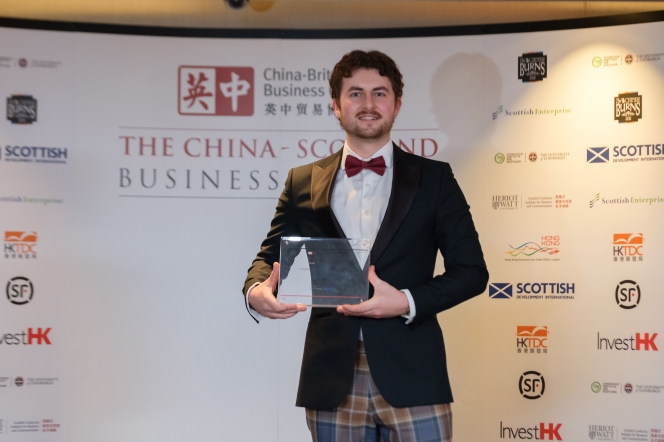
BYD has been named as Chinese Corporate of the Year at the China-Britain Business Council’s annual China-Scotland Business Awards held at a recent ceremony in Edinburgh. The accolade was presented during the CBBC’s Chinese Burns Supper, an event now in its 13th year and firmly established in the bilateral business calendar.
This particular award recognises the significant contribution of Chinese enterprises to the Scottish economy. The council specifically highlighted BYD’s substantial influence in advancing the sustainable growth of the New Energy Vehicle sector within the Scottish market, alongside the company’s impressive UK-wide sales performance, which has now surpassed 50,000 vehicles. Liam Howel, Deputy Head of Retailer Marketing for BYD UK, accepted the award on behalf of the company.
The China-Britain Business Council, serving as the UK’s premier business network for fostering trade and investment with China since 1954, acts as an independent voice for business, providing members with essential advice, analysis and access to opportunities.
Beyond the awards, the evening also served a charitable purpose, raising funds for the Migrant Children’s Foundation, an organisation dedicated to enhancing the lives and educational opportunities of underprivileged children in China through various health and learning initiatives.
Bono Ge, Country Manager, BYD UK, said, “It’s a huge privilege for BYD to have been presented with this award. Receiving this recognition is further endorsement that BYD is pushing in the right direction; we are not only producing cars which appeal to buyers and buses that keep the public transport sector moving but further forwarding the move towards sustainability via our energy storage solutions. Most of all, we are creating a business that supports local jobs both in Scotland and the rest of the UK.”
Panasonic Automotive Systems To Rebrand As Mobitera Inc.
- By MT Bureau
- March 01, 2026
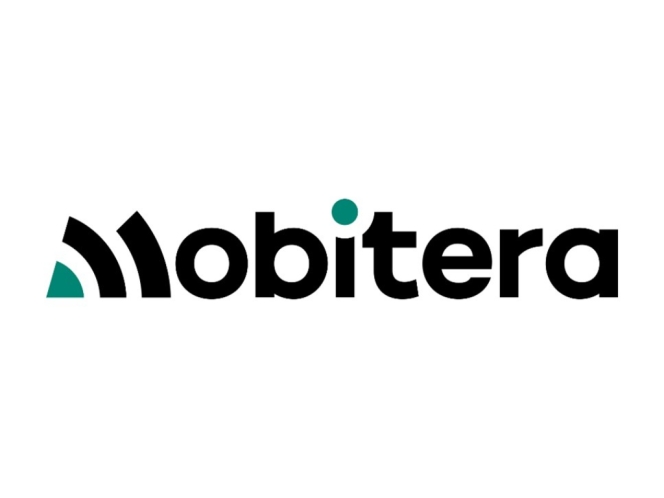
Japanese tier 1 supplier Panasonic Automotive Systems Co., has announced it will change its corporate name and brand to Mobitera Inc., effective 1 April 2027. The rebranding follows a strategic partnership formed in December 2024 with the Apollo Group, aimed at strengthening software development and optimising the company's business portfolio.
The transition to Mobitera represents the company's focus on the evolution of the in-vehicle cockpit space. The new name combines ‘mobility’ with the Latin ‘iter’ (path) and the Japanese ‘terasu’ (to illuminate).
The organisation is pivoting to meet market demands by prioritising software capabilities alongside its hardware legacy. The company’s mission has been defined as creating a sustainable mobility society, supported by a vision titled ‘Joy in Motion.’
The new logo features a central ‘I’ intended to symbolise a focus on individuals. The corporate colour, ‘Mobitera Blue-Green,’ has been selected to represent the harmonisation of society and the environment.
Masashi Nagayasu, Chief Executive Officer, Panasonic Automotive Systems, said, “Mobitera reflects our vision to power the future of mobility with our high-quality technologies that elevate and enrich the human experience. As we evolve our organisation to meet the needs of today’s rapidly changing market, we are committed to staying true to the core values that have long defined who we are.”
| Before change: | After change: |
| Panasonic ITS Co., Ltd. | Mobitera ITS Inc. |
| Panasonic Automotive Systems India Pvt. Ltd. | Mobitera India Pvt. Ltd. |
| Panasonic Automotive Electronics Co., Ltd. | Mobitera Solutions Inc. |
| Panasonic System Networks Evaluation Technology Co., Ltd. | Mobitera Evaluation Technologies Inc. |
| Harima SANYO Industries Co., Ltd. | Mobitera Wel Inc. |
| Panasonic Automotive Systems America, LLC | Mobitera America, LLC |
| Panasonic Automotive Systems de Mexico S.A. de C.V. | Mobitera De Mexico, S.A de C.V. |
| Panasonic Automotive Systems Reynosa Mexico S.A. de C.V. | Mobitera Reynosa Mexico, S.A de C.V. |
| Panasonic Automotive Systems Monterrey Mexico S.A. de C.V. | Mobitera Monterrey Mexico, S.A. de C.V. |
| Panasonic Automotive Sales Company de Mexico, S.A. de C.V. | Mobitera Sales Company de Mexico, S.A. de C.V. |
| Panasonic Automotive Shared Services Company Mexico, S.A. de C.V. | Mobitera Shared Service Company Mexico, S.A. de C.V. |
| Panasonic Automotive Systems Europe GmbH | Mobitera Europe GmbH |
| Panasonic Automotive Systems Czech, s.r.o. | Mobitera Czech, s.r.o. |
| OpenSynergy GmbH | No change |
| Panasonic Automotive Systems Asia Pacific Co., Ltd. | Mobitera Asia Pacific Co., Ltd. |
| Panasonic Automotive Systems Malaysia Sdn. Bhd. | Mobitera Malaysia Sdn. Bhd. |
- IAC India
- Lumax Group
- IAC Group
- Mahindra
- VECV
- Maruti Suzuki India
- Skoda
- Volkswagen
- Stellantis
- Sunil Koparkar
IAC India Bets On Engineering Depth & Diversification, Targets 20% CAGR Growth Till FY2030
- By Nilesh Wadhwa
- February 28, 2026

Sunil Koparkar, Managing Director, IAC India, outlines the company’s strategy to reduce customer concentration, expand exports and leverage group synergies following its integration with the Lumax Group.
As India’s automotive interior market evolves towards premiumisation, localisation and faster product cycles, IAC India, part of the Lumax Group, is repositioning itself beyond a single-customer dependency model – without diluting its core partnerships.
IAC India continues to derive a significant share of its revenue from Mahindra’s passenger vehicle business. While the concentration remains high, Koparkar is clear that diversification will be driven through growth rather than dilution.
“Mahindra will always be our primary customer. We have a very strong strategic partnership. But we are also working on expanding with other OEMs and in the commercial vehicle space. Our goal remains a 20 percent CAGR,” he says.
For FY2025, IAC India USD 140 million in revenue, and is targeting a 20 percent growth in FY2026. The company counts Mahindra as its primary customer with almost 78 percent of its business coming from them, while Maruti Suzuki India (12%), Volvo Eicher Commercial Vehicles (5%), Skoda-Volkswagen (3%) and Stellantis (1%) contribute towards the remaining business.
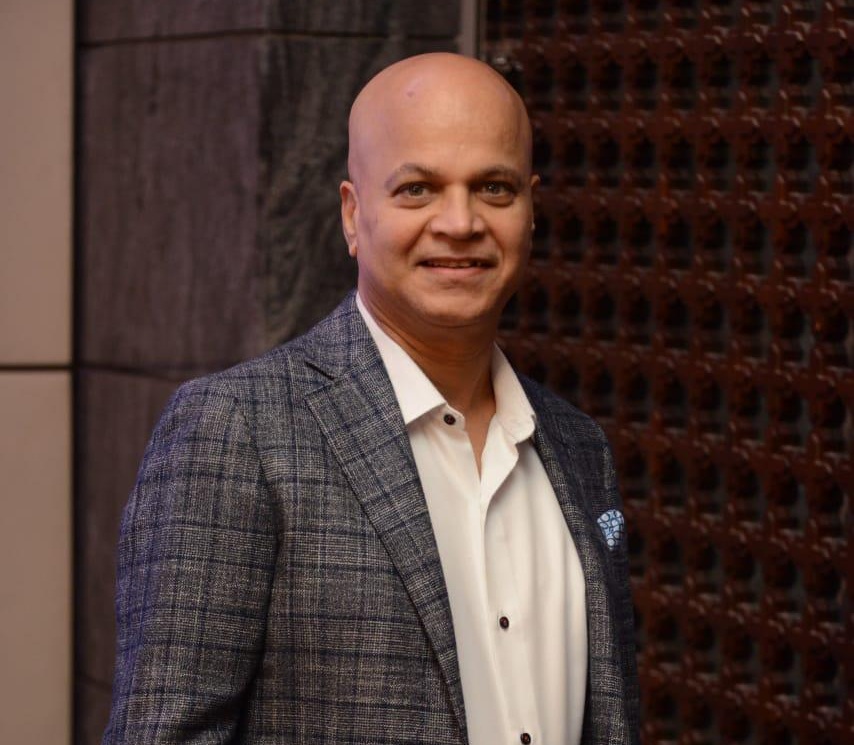 What’s more, responding to the company’s expansion plans, Koparkar revealed, that IAC Group, in addition to introducing new products, is also in talks with new-age players who have just entered Indian market (and also planning too) for supplying products.
What’s more, responding to the company’s expansion plans, Koparkar revealed, that IAC Group, in addition to introducing new products, is also in talks with new-age players who have just entered Indian market (and also planning too) for supplying products.
Currently, passenger vehicles account for roughly 90 percent of the business, with commercial vehicles forming the balance. Value-wise, Koparkar expects CV contribution to rise, even if percentage splits remain broadly similar due to the rapid growth of PV volumes.
Responding to a query on the potential growth from the CV segment, Koparkar said, “There is clear potential in CV interiors. As the CV market moves towards more comfortable cabins — with features like airbags, HVAC and infotainment — the opportunity for interior suppliers increases. Through Volvo Eicher, we have already helped drive that trend in India.”
When asked about the company’s expansion plans, Koparkar also stated that IAC Group is open to expanding to new regions as it aims to operate closer to its customers. One of the potential new projects for the company could very well be Chennai, as the company is in early talks with a new CV customer as well as VinFast.
Engineering as a Standalone Growth Lever
A key pillar of IAC India’s strategy is its expanding engineering capability. The company has been scaling up its R&D and product development team and increasingly positioning engineering services as a distinct revenue stream.
The company at present, employs over 300 engineers in India, which it aims to scale it upto 400-plus by next year and 500-plus in the coming few years.
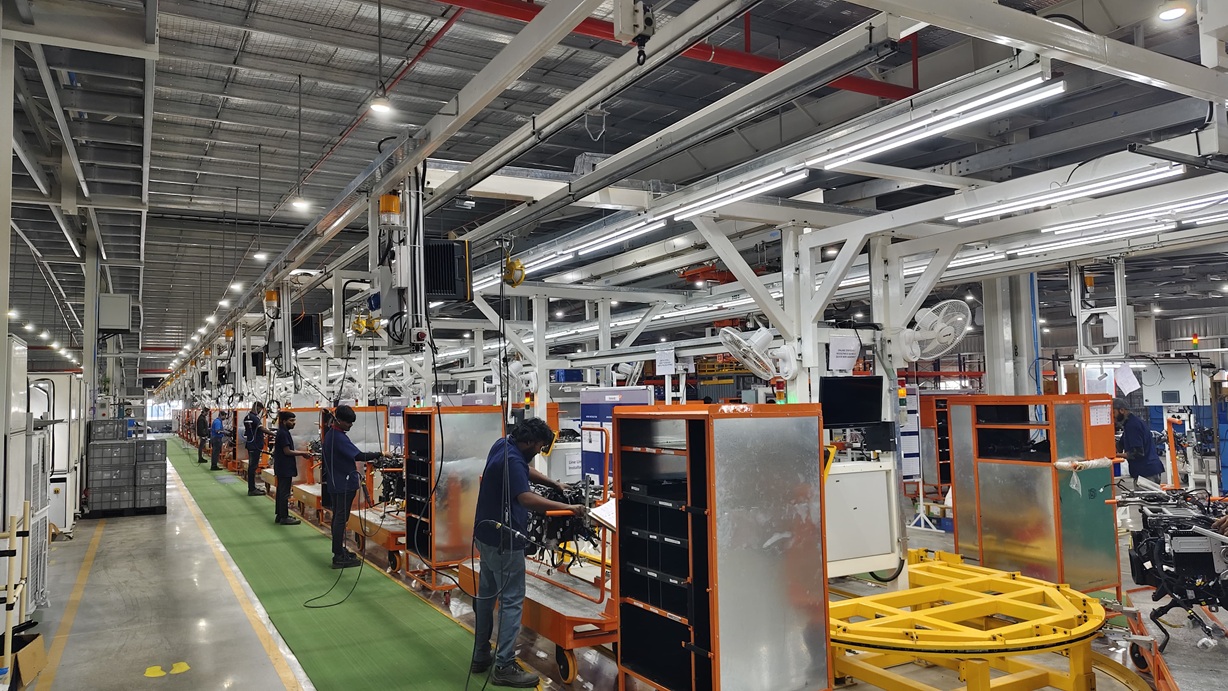
Historically, the Indian Engineering Centre supported the global IAC Group. “We were primarily the IAC Group engineering development centre. We will continue to provide those services. But now, besides global support, we are also offering engineering services to local OEMs,” Koparkar explains.
These services span studio collaboration, basic product design, CAE analysis and prototype development. In some cases, this can potentially evolve into full-scale supply programmes.
Importantly, innovation is now being formalised locally. “This year alone, we are in the process of filing about 30 patents,” he says. Earlier, intellectual property was subsumed under the global entity; now, filings are being initiated in India.
R&D investment remains aligned with group benchmarks at around 1.5–2 percent of revenue.
Exports: Measured Ambition
In terms of export potential, it currently contributes less than 5 percent towards the revenue, primarily through smaller kinematic parts. Direct exposure to the US market is negligible.
“Tariff-related uncertainty does not affect us because we do not export to the US,” Koparkar says. “Logistically, it does not make sense to ship our large interior parts there.”
Europe remains the primary export target. “The opportunity lies in leveraging our design capabilities and local development strengths. If logistics can be managed efficiently, there is room to grow.”
He also sees the Lumax Group’s aftermarket division as a future vehicle for export expansion.
Localisation and Supply Chain Resilience
On the localisation front, IAC India has made significant progress. “Last year was the first time we were able to localise over 99 percent of our tooling and development in India,” Koparkar states. Machinery on shop floors is largely localised, with only certain raw materials still imported.
The semiconductor crisis, he adds, had minimal direct impact. “We do not source electronics for our products — that is handled by the customer. However, from a development perspective, we are evaluating secondary substitutes for imported components, so we are prepared in case of disruptions.”
Premiumisation, Sustainability and AI
Premiumisation is currently the dominant interior trend. “Customers are moving away from basic plastics to more premium-feel interiors. Electronification is a big driver,” Koparkar says.
Sustainability, however, remains nascent in India. “There is no specific push for sustainable materials yet. What OEMs are looking for is lightweighting to meet upcoming CAFE norms. If a sustainable material delivers significant weight reduction, then it becomes serious.”
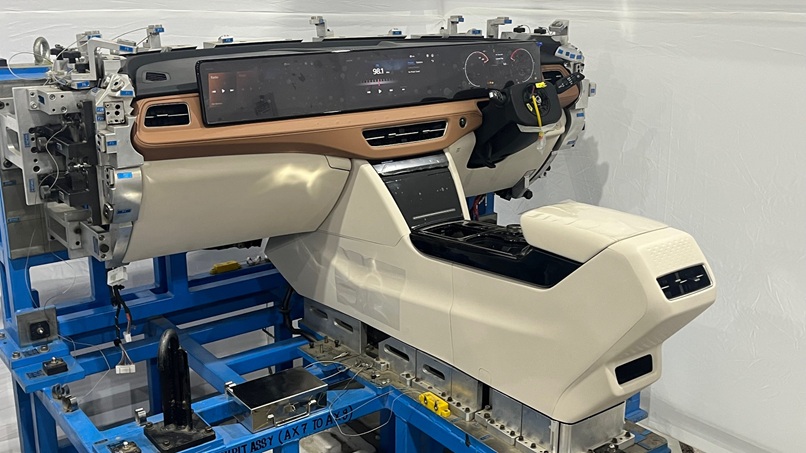
He points to jute, coir and bamboo fibres as potential alternatives but stresses that ecosystem-level collaboration is essential. “Unless a circular economy develops around us, sustainable materials will struggle to scale.”
On automation, operations across IAC’s six plants are roughly a 50:50 mix of automated and manual processes, depending on volume justification. Cobots and semi-automation are used where full automation does not offer viable returns.
AI, meanwhile, is expected to influence design more than manufacturing. “We see AI helping us accumulate design learnings and reduce design cycle times. Its impact will be more visible in engineering services than on the shop floor.”
Faster Development Cycles
Product life cycles are shrinking rapidly. “It used to take five years to develop a car,” Koparkar reflects. “With the XUV700, we worked with the customer to shrink that to 42 months. EVs are being developed even faster.”
As development timelines compress and interiors become more technology-intensive, IAC India is betting on engineering depth, localisation strength and group synergies to sustain its 20 percent growth ambition – while steadily broadening its customer and geographic footprint
- Rosmerta Technologies
- The Curious Bunch
- CII National Conclave on Road Safety
- Dr Rajesh Mohan
- Ravi Krishnamoorthi
- road safety
Rosmerta Launches Road Safety Comic Book For Schools
- By MT Bureau
- February 27, 2026
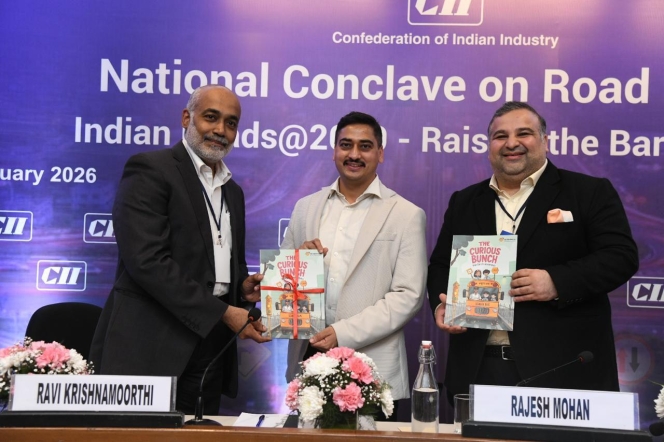
Rosmerta Technologies has launched a comic book titled ‘The Curious Bunch’ at the 3rd Edition of the CII National Conclave on Road Safety. The publication is designed to introduce road safety awareness to children.
The initiative aligns with the Government of India’s ‘4E’ strategy for road safety, which focuses on Engineering, Education, Enforcement and Emergency Care. The comic book aims to address the 168,000 road fatalities reported in India in 2022 by fostering safe habits at a school level.
The comic book uses illustrations to present road scenarios, including pedestrian conduct, school bus safety, traffic signals & the use of helmets, seatbelts and child restraint systems. By educating children, the company intends to influence the behaviour of parents and the wider community.
Rosmerta, a provider of mobility solutions, currently operates technology systems for automated driving tests and AI-based monitoring. The launch of ‘The Curious Bunch’ marks an expansion of its activities into the education pillar of the national safety framework.
Dr Rajesh Mohan, DCP, Gurugram Traffic, said, “When we educate children and instil strong moral and ethical values, the impact travels far beyond the classroom. Children naturally share what they learn. They question, they explain, and they influence conversations at home. In many ways, they become powerful advocates, encouraging their parents to be more aware, more responsible, and more engaged. Over time, this awareness translates into action, because parents are also drivers, commuters, and decision-makers on the road.”
Ravi Krishnamoorthi, Group President, Rosmerta Technologies, said, “Every road accident statistic hides a parent’s anxiety. In 2022 alone, India reported over 168,000 road accident fatalities, according to government data. Road safety is not merely about compliance; it is about compassion and collective responsibility. When a child understands why a red light matters or why a helmet can save a life, they don’t just learn a rule - they become ambassadors of safety within their families and communities. Through ‘The Curious Bunch’, we aim to nurture this awareness early, because the habits we shape in children today will define the safety culture of our nation tomorrow.”






Comments (0)
ADD COMMENT